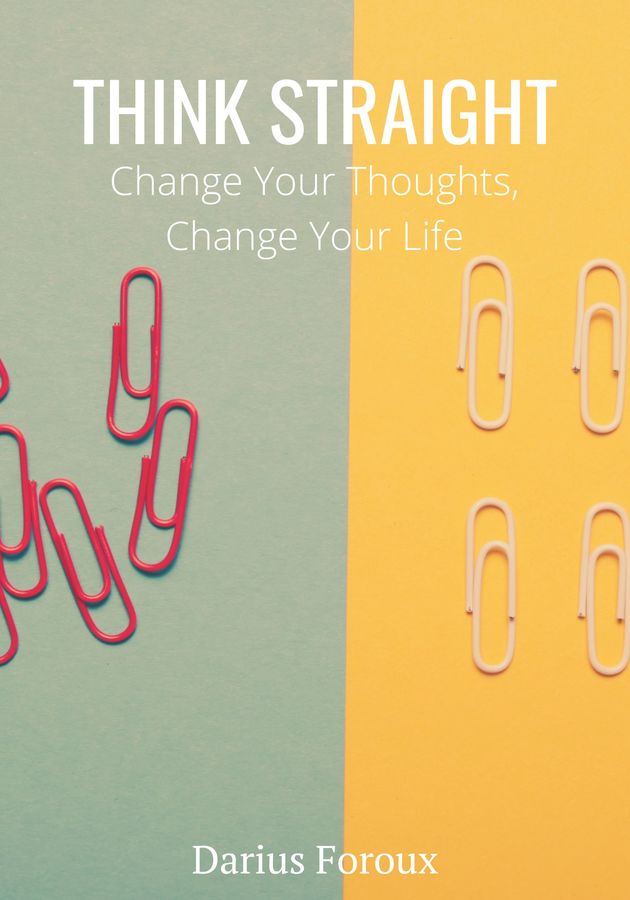In 1869, a 27-year-old Harvard graduate was going through a “crisis of meaning.” Suffering from frequent panic attacks and hallucinations, he began contemplating suicide. Since his father had gone through something similar before him, the young man quickly convinced himself that his condition was biological. That, of course, only made it worse. But then, in 1870, he came across an essay on free will by Charles Renouvier, a French philosopher. Upon reading it, this is what he wrote in his journal, “I think the crisis has passed. There’s no reason to think of free will as an illusion. In fact, my first act of free will shall be to believe in free will.”
Years later, this simple realization would become the founding thought of pragmatism, a school of philosophy established by this very young man. His name was William James. Once an anonymous youth on the brink of suicide, today he is considered the “Father of American Psychology” and the most influential American thinker of the 19th century. His main discovery of that fateful 1870 – namely, that we can actually control what we think – is at the core of Darius Foroux’s brief, but illuminating, guide to thinking pragmatically, “Think Straight.” Get ready to discover how!
A (very) brief history of thinking
The desire to understand and master thinking is as old as human civilization. However, the idea that it’s important to systematically question everything really took off in fifth-century Athens. “The unexamined life is not worth living,” famously proclaimed Socrates. Even more famously, he argued that if the Oracle of Delphi was right in saying that he was the wisest person in Greece, it wasn’t because he knew many things in depth, but because he knew one thing only – namely, that he knew nothing. As everybody knows today, at the core of this seemingly confusing Socratic paradox lies a very simple idea – that true wisdom comes to us only when we realize how little we understand about life, ourselves, and the world around us.
17th-century French philosopher René Descartes took Socrates’ doubts about what we could know even further, and began questioning and doubting everything, even his very own existence. How could we know, he wondered, if we are not just parts of someone else’s dream or, to use a more modern analogy, how could we know that we are not living in the Matrix? Finally, Descartes realized that even though he could question everything, he couldn’t question himself questioning things, that is to say, that he could not doubt that there’s something inside him that’s doing all the thinking. That’s why he famously exclaimed: “I think, therefore I am,” meaning we must exist because, even if nothing else does, our thoughts certainly do.
Nevertheless, Descartes’ most important contribution to the history of ideas wasn’t his famous and oft-refuted existential proof, but the realization that rather than questioning our thinking, we should question its sources, because – as Descartes noticed – most of our beliefs aren’t based on facts or reality, but on perceptions and preconceptions. William James, the founder of pragmatism, formulated it even better. “A great many people think they are thinking,” he wrote, “when they are merely rearranging their prejudices.” Indeed, people go to gyms to keep their bodies fit, and yet they feel they don’t need to train their brain to think better. Unfortunately, as Stoic philosopher Epictetus wrote, “clear thinking is not a haphazard enterprise – it requires proper training.” Well, that’s what pragmatism is. It’s not a final solution, but a training regime, a method of thinking!
The foundations of practical thinking
John Dewey, a pragmatist, and one of the fathers of functional psychology, once famously said: “The true is that which works.” Of course, that doesn’t mean that we should believe only in things that are useful to us because sometimes what’s useful to one person may be harmful to another; moreover, some useful things can also make one delusional. However, Dewey’s belief does mean that – after doing away with all the delusions – the most important thing you’ll ever learn is how to differentiate between useful and useless thoughts. “If we want to think straight at all times,” writes Foroux, “we must stay grounded, look at facts, listen to other people’s perspectives, and only then draw practical conclusions.”
The best way to differentiate between useful and useless thoughts is to consistently ask yourself the following question: “Will the outcome of a decision change the way I live for the better?” Notice the emphasis on “I”. Regardless of what other people think, useful is what works for you – not for them. Take, for example, the Foroux himself. Born in Leeuwarden, a small city in the Netherlands, he spent his childhood dreaming of moving to a bigger city. When such an opportunity arose, he seized it: in 2014, he moved to London. After a while, however, he realized that he hated it. He hated all the crowded places, the dirty air and the unreasonably high costs of living. So, he did what few people ever consider – he moved back to his hometown, where he still lives.
Now, many people might say that Foroux made a step down the social ladder, but, as he himself writes – so what? After all, it’s not them that are living his life. As obvious as that sentence might sound, if you turn inwardly and are perfectly honest with yourself, you’ll probably realize that most of us don’t live by it. Just how many TV shows have you watched merely because your friends had peer-pressured you into it? How many restaurants are you dying to visit just because your favorite influencer has endorsed them on Instagram? Life is too short to experience everything. And it is not about that, but about finding the things you want to experience. Chances are most jobs, opportunities, countries, people, parties, lifestyles, books – they’re not for you. What is – is probably “a very small list.”
Being in control: self-knowledge and facts
Ancient writers tell us that in the forecourt of the Temple of Apollo at Delphi, there stood written three maxims which the Ancient Greeks considered the foundation of all knowledge. The first one of the three, the one to rule them all, was: “Know thyself.” Indeed, lack of self-knowledge is the main reason why people make the wrong decisions in their lives. They enter various relationships and job commitments, and make all kinds of difficult decisions on the spot, even though they’ve never really thought about things such as what they are really passionate about or how they would prefer to learn new things. These things – unlike, say, worrying about the past or fantasizing about the future – are really useful. Mostly, because you can control them.
You see, most people spend years of their lives thinking about things that are out of their control. That’s useless because it serves no purpose. What’s the point of cursing the weather because a storm has prevented you from going on a picnic? Your thoughts won’t change anything. In fact, if you think about it, it’s not the weather that’s ruining your weekend but your own faulty and useless thinking. In Foroux’s opinion there are only two types of useful thoughts – those aimed at solving problems and those aimed at understanding knowledge. In other words, unless you’re thinking about how to overcome an issue you have, or actively internalizing new information that might improve your life, career or love life, you’re probably wasting your time.
You’re also wasting your time if you’re making decisions based on intuition and obvious logic. That’s because your brain isn’t a computer, but a survival mechanism. As such, it’s defensive by design and bound to make a lot of mistakes if feeling threatened – which is, unfortunately, most of the time. Scientists call these mistakes “cognitive biases.” Most cognitive biases, at first glance, seem quite commonsensical – and that’s the main problem! Because neither intuition nor common sense lead, as a rule, to good decisions; what does are objective facts. Because, after all, unlike common sense and intuition – which are subjective – facts correspond to our shared, interhuman reality. In essence, this means that there are only two types of decisions: good-informed and bad-informed. So, unless you have enough information regarding a decision you’re making, you’re probably merely winging it. Is that how you want to live your life?
Some final thoughts on thoughts
Even though facts are important when it comes to straight thinking, there’s a big difference between what they are and how we use them. For example, the question “does God exist?” is too confusing to be answered with a simple “yes” or “no.” Whatever answer one might give you, at least for the time being, it will probably not be factual enough. When it comes to these kinds of questions, much more practical than trying to find a factual answer is to answer them in terms of usefulness, that is to say, in terms of whether they have a positive impact on your life and the lives of other people. In our case, if you and the people around you feel that your belief in God is helping you become a better person, then – in the absence of definite facts – you’re fine taking God’s existence as one, no matter what other people might be saying.
However, this doesn’t mean that you shouldn’t be thinking beyond yourself. In fact, quite the opposite. If some idea you believe in is harmful to someone else, then it’s not a practical idea, even if it’s seemingly useful to you, because if everybody had such ideas – practical to them, but harmful to others – then you’ll end up harmed as well. Pragmatism, by definition, means that “one must look at the practical value of ideas,” and ignore abstract theories that have no positive impact on yours or other people’s lives. “The greatest use of a life is to spend it on something that will outlast it,” said once William James. Of course, practically speaking, there’s no purpose to doing something that merely outlasts you, because you won’t be there to see it. However, by living your life with such an idea in mind, you’ll end up internalizing it and that way you’ll end up spending more time on things that actually make a difference – in your life, in the world.
In many ways, that’s the final consequence of thinking more practically – doing things. As counterintuitive as it might sound, pragmatism is a philosophy of thinking that aims to take thinking out of the equation. In other words, it aims to train you to think in such a way that you’ll improve not the quality of your thoughts, but the quality of your actions. To do so, you don’t need complicated sets of rules or training routines, but shortcuts, filtered-out instructions that are simple enough to propel you into doing stuff. In other words, rather than choosing a diet regime, just start dieting. After all, wouldn’t you be healthy and fit if you just eliminate junk food from your diet and start exercising for half an hour every day? Then wherefore all the dieting articles and bookmarks? Rather than reading a bunch of self-help books, it’s much better to merely choose one and – live by it.
Final notes
Even though brief in length and quite humble in breadth, “Think Straight” is a valuable book – dare we say, much more valuable than the majority of self-help books out there. Not only is it rooted in the most important American philosophical movement – William James’ pragmatism – but it is also quite well-informed and breezily readable. Moreover, it’s honest and written in such a way that you’ll be able to come back to it – and use it as an anchor during trying times.
12min tip
There are books that are meant to be understood (say, Shakespeare and Tolstoy) and books that are meant to be used (Dale Carnegie and Napoleon Hill). If the self-help books you’ve bought so far aren’t useful to you, then throw them away.





























